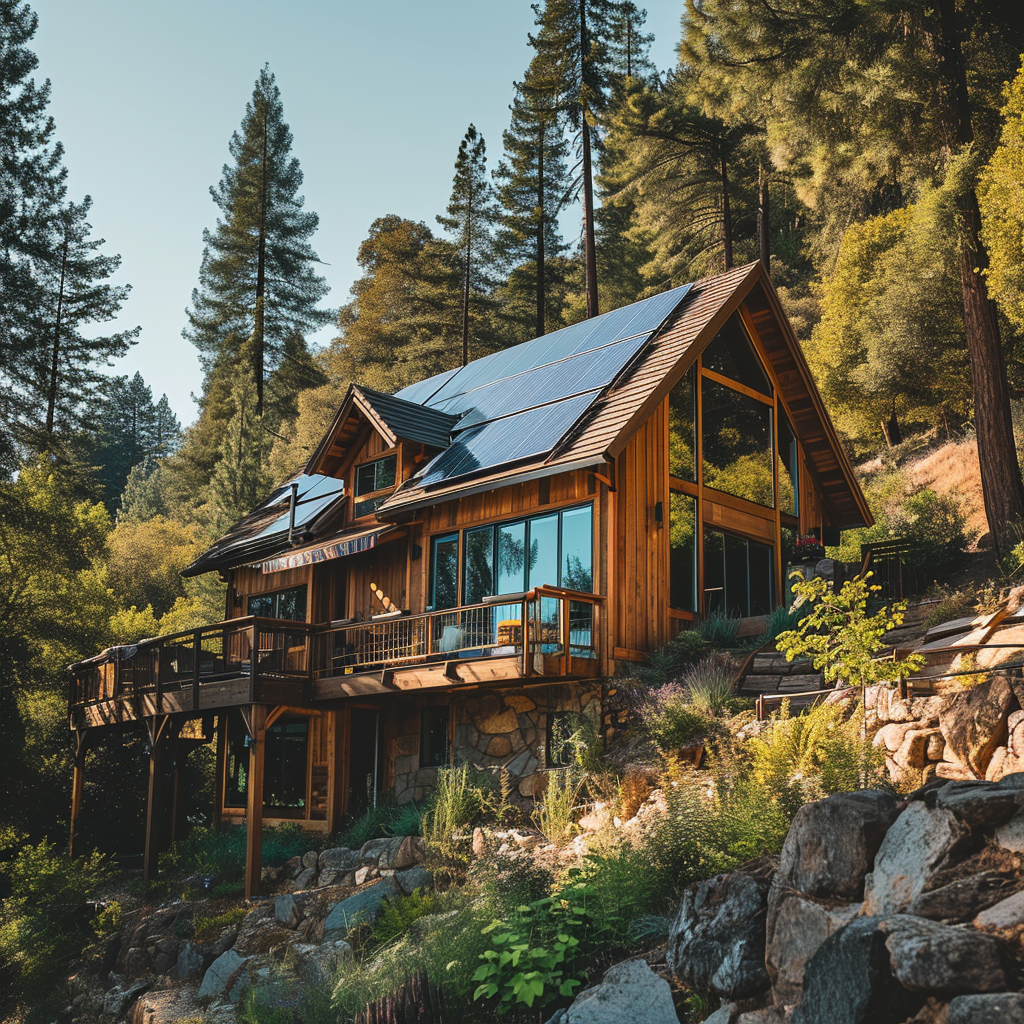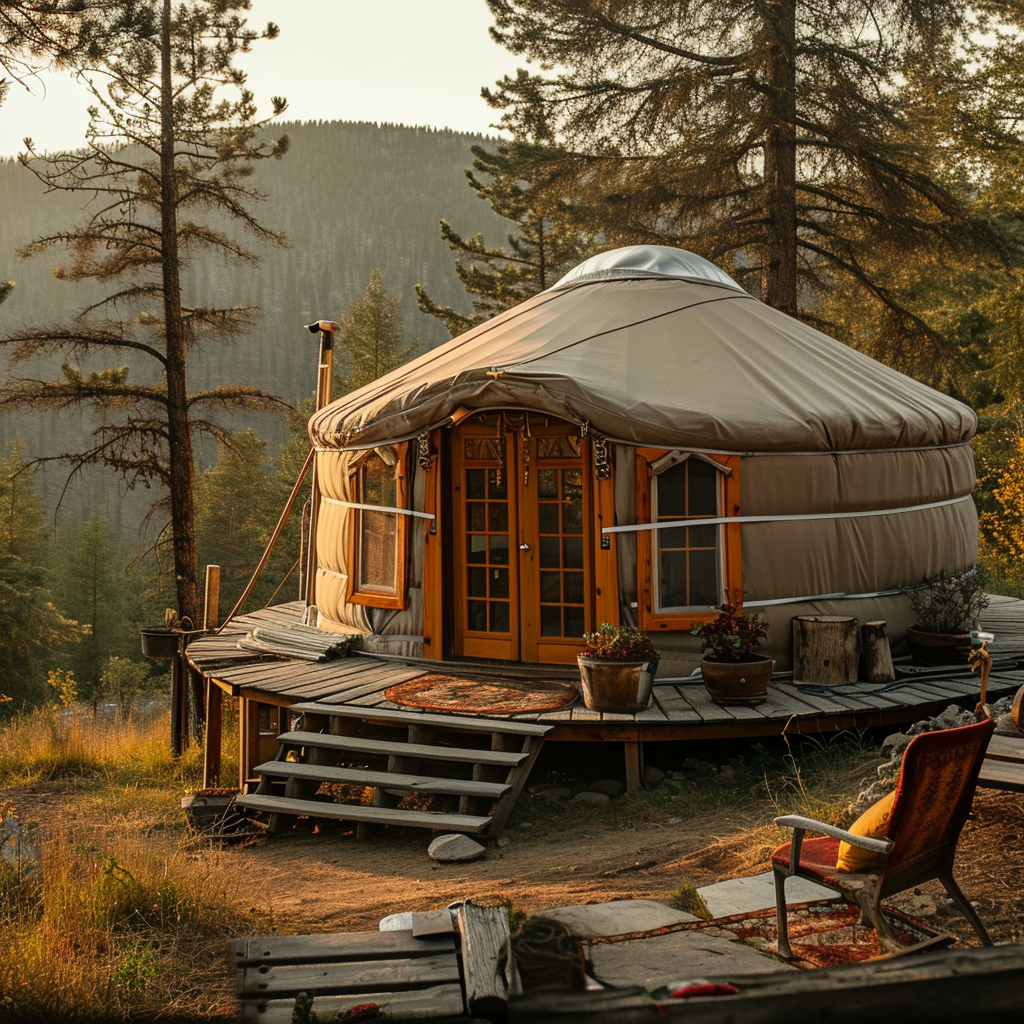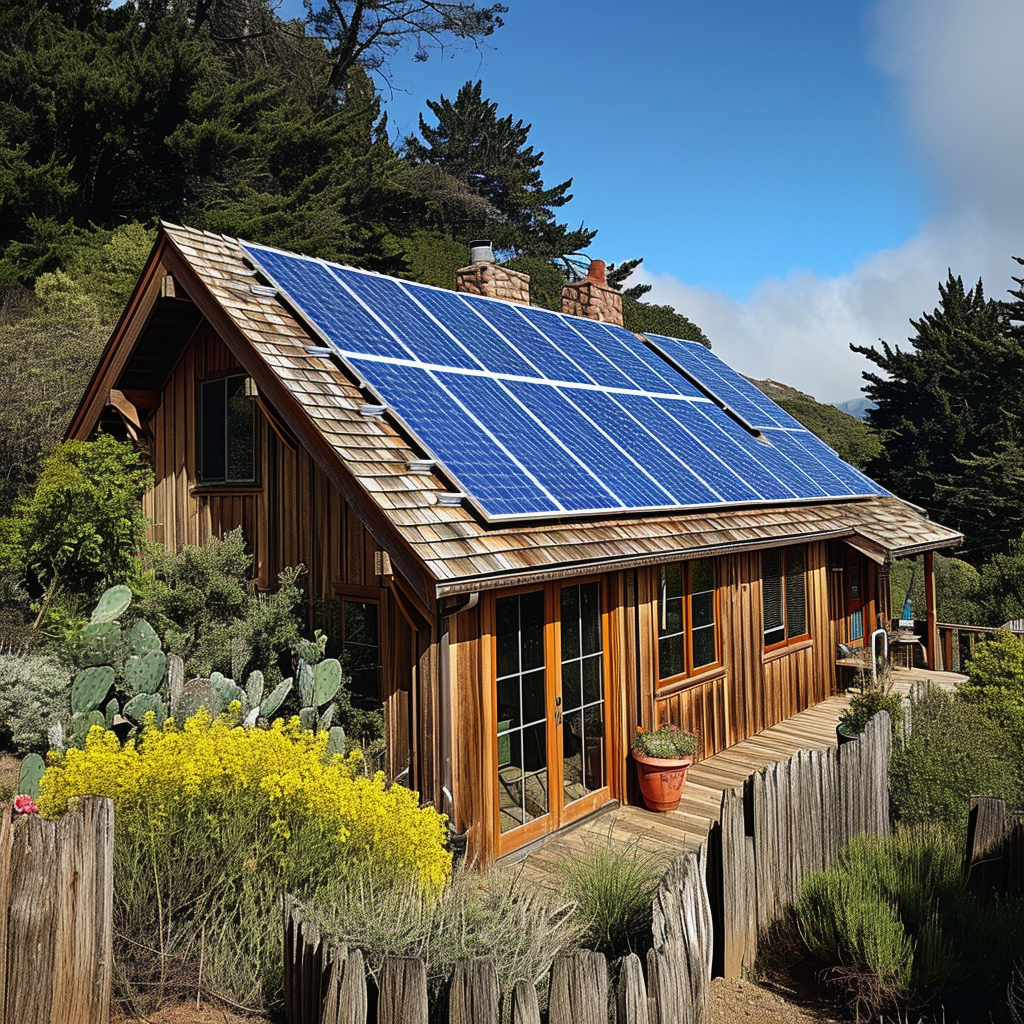Introduction
Living off-grid is a trend that has grown in popularity but What does off-grid mean? It means not relying on public utilities like electricity and water. Instead, you generate power with sustainable sources like solar and wind. This lifestyle choice reduces your carbon footprint and makes you self-sufficient.
Embracing this life involves simplicity and sustainability. Make conscious choices to reduce energy usage and live in harmony with nature. Build eco-friendly homes using natural materials and efficient systems for heating, cooling, and waste management. Utilize rainwater harvesting, composting toilets, and permaculture to grow your own food.
Off-grid living offers freedom. Generate your own electricity and water supply, not bound by monthly bills or prices. You can live off the land and create a self-sustaining ecosystem. Disconnecting from the grid can also deepen your connection with nature.
If you want more freedom and simplicity, consider going off-grid. This lifestyle opens up possibilities for personal growth and environmental stewardship. Start researching how you can make the transition today!
Understanding the concept of “off-grid”
To understand the concept of “off-grid,” dive into the world of off-grid living. Define the essence of living off-grid and discover its numerous benefits. Uncover how embracing self-sufficiency and sustainability are the cornerstone of this lifestyle. Delve into the freedom it offers and witness the harmony between nature and humans.
Defining off-grid living
Off-grid living means being self-sufficient in terms of energy, water, and waste management. It involves no conventional utilities – just renewable sources like solar power, wind turbines, rainwater harvesting, and composting toilets.
This lifestyle offers freedom and autonomy, reducing your environmental impact and allowing for a closer connection to nature. Plus, you’ll need to be mindful of your electricity, water, and waste production. Energy-efficient appliances and limiting water-intensive activities can help.
Community support is key too. Working together to share knowledge and pool resources, like group purchases of solar panels, can boost your self-sufficiency journey.
Transitioning to off-grid living? Follow these tips: research local climate conditions and available natural resources; invest in quality equipment; and learn about sustainable practices.
Say goodbye to electricity bills and hello to a life where candlelit dinners are a romantic choice, not a power outage necessity. Off-grid living redefines your relationship with the environment, and offers numerous environmental benefits. With careful planning, community cooperation, and ongoing education, anyone can explore this alternative way of living.
Benefits of choosing an off-grid lifestyle
To achieve a self-sufficient lifestyle without relying on traditional utilities, explore the benefits of choosing an off-grid lifestyle. Independence from traditional utilities allows you to embrace sustainability, reduce environmental impact, and cultivate a sense of self-reliance.
Independence from traditional utilities
Living off-grid offers independence from traditional utilities. Disconnecting from grids that supply electricity, water, and gas, enables greater autonomy and self-sufficiency. This leads to a sense of freedom and liberation – no more bills or fluctuating energy prices.
Plus, off-grid living encourages conscious conservation of resources, as individuals have a direct understanding of their energy and water consumption. Additionally, off-grid systems provide protection in times of natural disasters or power outages.
According to the U.S. Energy Information Administration (EIA), 1.7% of households in America were off-grid as of 2019. This percentage is predicted to rise as more people recognize the benefits of off-grid lifestyles.

Challenges and considerations of living off-grid
To tackle the challenges and considerations of living off-grid, delve into self-sustainability and resource management. Explore the sub-sections on this topic to discover effective solutions for sustaining yourself and managing resources efficiently in an off-grid lifestyle.
Self-sustainability and resource management
Text: A Table of self-sustainability & resource management:
| Aspect | Description |
|---|---|
| Water conservation | Collecting rainwater. Recycling greywater. Limiting usage. |
| Energy generation | Solar panels, wind turbines, generators. |
| Food production | Fruits & veggies. Livestock. Aquaponics. |
| Waste management | Composting organics. Recycling. Reducing plastic. |
Prioritizing resource allocation is key. This saves resources without hurting quality of life.
To make daily routines sustainable, use energy-efficient appliances. Natural lighting instead of artificial. And permaculture for food production.
To be self-sustainable, reduce the ecological footprint with conscious decision-making. Biodegradable products. Support local biz.
With this holistic approach, individuals can meet basic needs & minimize environmental impact. Even while living off the grid. Swipe left on technology!
Off-grid solutions and technologies
To understand off-grid solutions and technologies in the context of what does off-grid mean, delve into the sub-sections – solar power and alternative energy sources. These sub-sections provide insights into the potential solutions for living or operating without reliance on conventional power grids.
Solar power and alternative energy sources
Solar power is a key player in the alternative energy world. It uses photovoltaic cells to turn sunlight into electricity, making it eco-friendly. Wind power also harnesses clean electricity, using wind turbines. Hydroelectric power is generated by flowing or falling water, using dams or other mechanisms. Biomass energy takes organic matter, like agricultural waste or wood pellets, and turns it into energy, helping waste management. Geothermal energy gets its power from the Earth’s natural heat, giving it a reliable source of energy.
Recent years have seen great improvements in solar power. Solar panels and storage tech are becoming more efficient, making it easier for people and communities to use clean solar energy. Research in this area holds promise for even greater scalability and affordability.
In 1941, Russell Ohl invented the photovoltaic cell. This momentous moment opened the door to solar tech advancements, leading us to a future where renewable energy is a big part of global energy needs. For those who want to go off-grid, these successful communities prove that this can bring brighter futures – and more body hair!
Examples of successful off-grid communities
To better understand successful off-grid communities, dive into inspiring stories of off-grid living. Get ready to be inspired by the incredible journeys and achievements of individuals who have embraced self-sustainable lifestyles. Witness firsthand how these remarkable communities have thrived by harnessing renewable energy, practicing sustainable farming, and fostering a deep connection with nature.
Inspiring stories of off-grid living
Going off-grid is becoming a hot trend among those aiming for a greener, more independent life. Here are some inspiring stories of successful off-grid communities:
- Earthship Biotecture in Taos, New Mexico is one such place. It’s made up of eco-friendly homes built from items like tires, bottles, and cans. Solar panels and wind turbines power the dwellings, and onsite gardens provide food.
- In Missouri lies the Dancing Rabbit Ecovillage. This intentional community lives sustainably while promoting social and environmental responsibility. It has energy-efficient homes and composting toilets, plus organic farming.
- Scotland’s Findhorn Ecovillage has been thriving for over 50 years. It has sustainable practices, wind turbines, spiritual living, and focuses heavily on environmental education.
- Portugal’s Tamera Peace Research Village is an off-grid community with a focus on peace and sustainability. Natural building techniques are used, rainwater is collected, and cooperative decision-making is emphasized.
These off-grid communities demonstrate that living sustainably can be enjoyable. Here are tips for those interested in this lifestyle:
- Start small – make small changes to your current lifestyle before jumping all in.
- Go renewable – incorporate solar panels or wind turbines into your home.
- Manage water – install rainwater harvesting systems or use greywater.
- Join a community – join an existing one or create one with like-minded folks.
Follow these suggestions to begin your journey and help create a better future.

Conclusion
Off-grid living is an exciting concept, allowing people to break away from traditional energy sources and become self-reliant. Let’s delve into some unique details of this way of life.
It is important to plan and be prepared for off-grid living. Consider the energy source – solar panels are a popular renewable choice. Wind turbines or hydroelectric systems may be better depending on the location and resources.
Water supply is also essential. Rainwater harvesting systems can store rainwater for everyday use. Wells and natural springs may provide sustainable water if maintained.
Waste disposal is another consideration. Traditional systems may not be viable, so composting toilets or septic tanks with leach fields can manage waste with minimal environmental impact.
Energy-efficient appliances and technologies make off-grid living more comfortable. Think energy-efficient fridges, LED lights, and low-flow fixtures. These conserve resources while providing necessary amenities.




